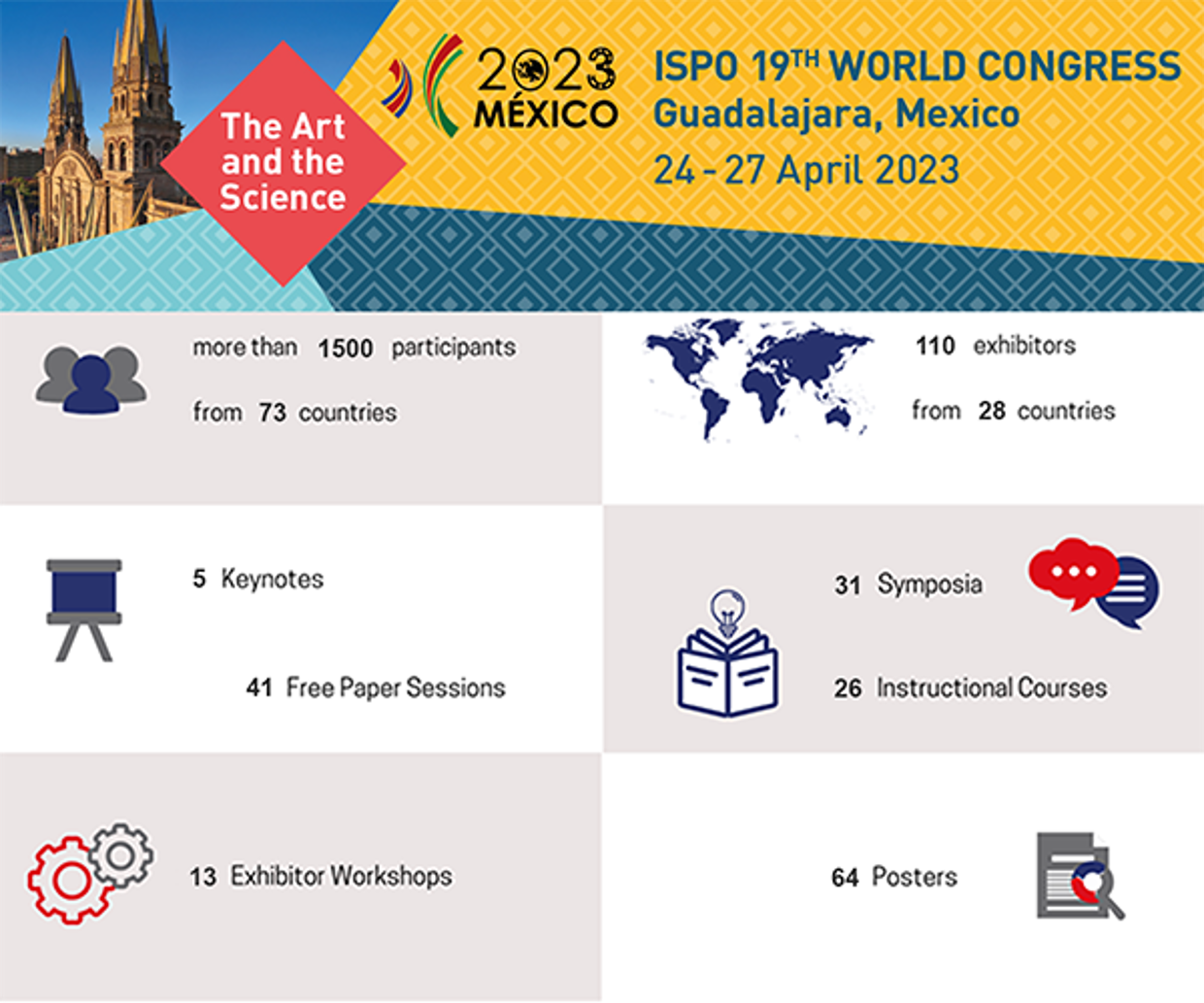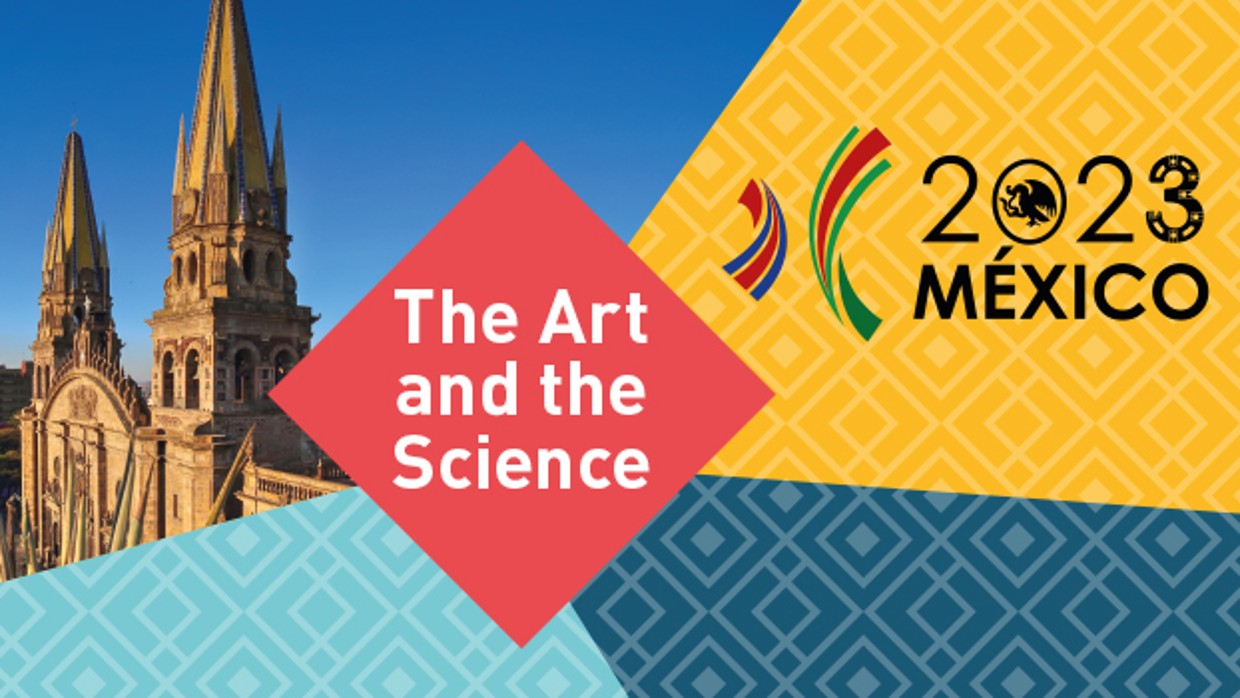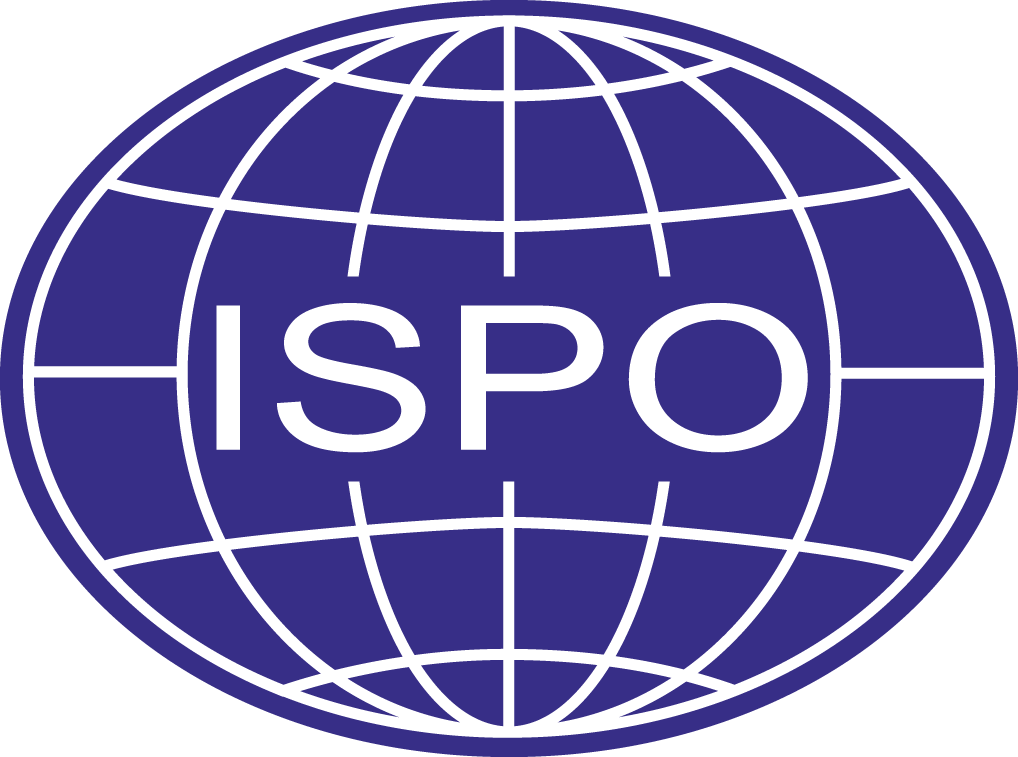ISPO 19th World Congress 2023 in Mexico


ISPO 19th World Congress in Guadalajara, Mexico
The 19th World Congress of the International Society for Prosthetics and Orthotics (ISPO) celebrated a successful premiere in Latin America from 24 to 27 April in the Mexican city of Guadalajara. The prestigious World Congress welcomed 1,500 participants from 73 countries who came to gain insights into the latest scientific findings as well as the most current developments in treatment and care. At the exhibition, 110 companies from 28 countries showcased their products and solutions for modern treatments for people with disabilities.
View the final programme (PDF, 6 MB)
View the abstract book (PDF, 10 MB)
The ISPO 19th World Congress was attended by 1,500 participants from 73 countries, from low to high income countries. The top countries in attendance included Mexico, the USA, Germany, United Kingdom and Canada. Overall, 40 per cent of the participants came from within Latin America.
Some 300 speakers from all over the world presented an extensive four-day scientific programme revolving around "The Art and the Science" with a total of five keynote lectures, 31 symposia, 18 basic and 8 advanced instructional courses, 41 free paper sessions, 64 scientific posters, seven lunchtime sessions and 13 exhibitor workshops.
“After four years, it was great to reconnect face-to-face with the ISPO community at the ISPO 19th World Congress. Alongside the excellent scientific programme, participants were able to see, in the exhibition, innovations from the major companies and from smaller companies as well as start-ups. During the World Congress, ISPO launched two special interest groups - one for bone-anchored limbs and one for upper limb prosthetics. The World Congress was also successful as one of the strategic objectives was to reinforce the link within the professionals coming from the region. We look forward to seeing you all at the 2025 World Congress which will be held in Stockholm, Sweden."
Awards for excellence
At the Spanish-language keynotes during the Opening Ceremony, the two speakers, Rosielena (Rosie) Jované and Ana Paulina Chavira, greatly impressed listeners with their warmth and sincerity.
Rosie is one of the leading representatives of the prosthetics and orthotics sector in Latin America. She held the Knud Jansen Lecture, which was initiated by the ISPO in honour of its founding President.
In the subsequent IC2A Inspirational Lecture, Mexican journalist Ana Paulina Chavira shared her personal life story. She was emotionally devastated by a shattering cancer diagnosis that required her leg to be amputated. It was only when she met Marlo Ortiz and was fitted with a MAS-Socket that she was given hope for a normal life again. She was awarded the IC2A medal for her inspirational life story.
The Sepp Heim Award was initiated by ISPO in 2019 in honour of Sepp Heim's significant lifetime contributions to ISPO and acknowledges institutions or individuals who have made a significant contribution to the development and/or provision of appropriate mobility device services in less resourced settings. This year, the award winner was Sandra Sexton from the United Kingdom. She donated her prize to African Vision Malawi.
The Brian and Joyce Blatchford Team Prize for Innovation was set up by the Blatchford family and honours a team that has an outstanding record of innovative achievement in the field of prosthetics and/or orthotics. Joan Sanders and her team from the University of Washington in Seattle were awarded this year's prize for their dedicated work on innovative technologies for socket interfaces.
Best Paper and Poster Prizes were presented in the categories:
- Advancing Clinical Treatment: Effect of Orthoses on Balance in Children with Cerebral Palsy: Solid AFO versus Ankle-Foot Orthoses Footwear Combination by Kristie Bjornson, Stefania Fatone, Michael Orendurff, Chuan Zhou and Garth Shippen
- Advancing Technology: Defining Paediatric Prosthetic Knee Technical Specifications: An Inverse Dynamics Approach using a Novel OpenSim Model of a Child with Limb-Loss by Caitlin E Edgar, Richard K Jones and Anthony MJ Bull
- Advancing Psychosocial / Socio-Economic Science: Prosthesis Users’ Perceptions of Daily Life – A Phenomenographic Study by Nerrolyn Ramstrand, Anders Stener and Lina Palmér
- Advancing Education: A Novel Approach for Guiding Orthotic and Prosthetic Education Program Transition to Client-Centric Training by Christopher Hovorka
- Best Poster: Days to Prosthetic Fitting After Major Lower Limb Amputations – National Data From Sweden by Stefan Sanfridsson
Recordings of the presentations are available online
Recordings of all keynote lectures, the Opening and Closing Ceremonies, Launch of the WHO Wheelchair Provision Guidelines as well as a selection of free papers and posters are now available on the virtual platform at ispolearn.org. Content can be accessed by congress participants and ISPO members.

The World Congress theme The Art and the Science brought together two important aspects of prosthetic, orthotic and mobility care. The Art can refer to elite craftsmanship and clinical experience that is applied when providing appropriate services for assistive technology consumers. Art can also relate to the personalisation and artistic aspects of device design that incorporates the user’s personality and feelings, moving an assistive device beyond just a piece of technology. The Science incorporates innovation, evidence, and knowledge translation across the spectrum of prosthetic, orthotic and mobility services to enable end-users to receive appropriate services at the right time, the right place, and the right cost.


























































































































